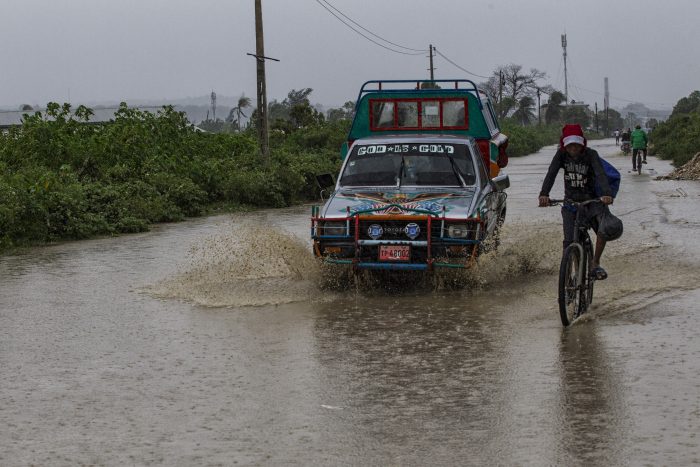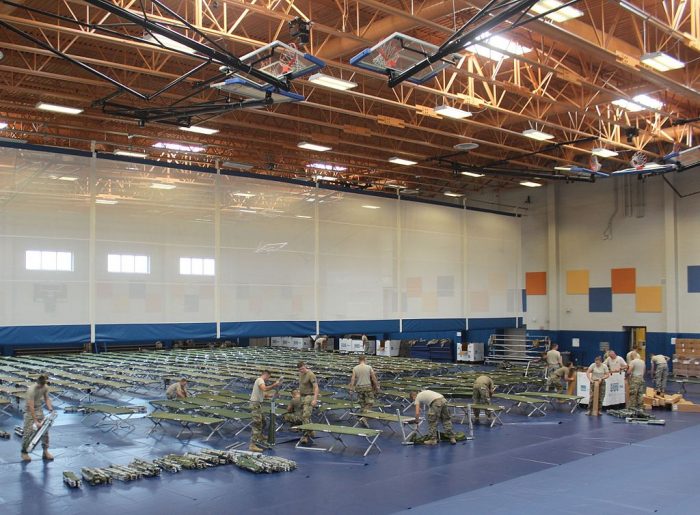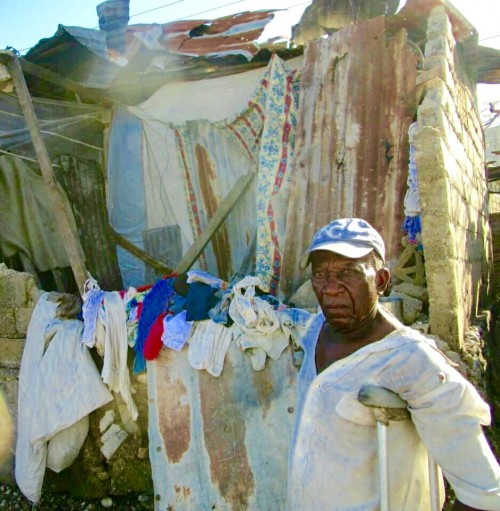Hurricane Matthew: When, How, and Where to Give
In this kind of catastrophic scenario, the Center for Disaster Philanthropy is here to help you answer these three important questions: When should you give? How should you give? Where should you give? Like many of you, I have been staring at the Hurricane Matthew trajectory map—with projections showing that the storm will hit Florida […]

In this kind of catastrophic scenario, the Center for Disaster Philanthropy is here to help you answer these three important questions:
When should you give? How should you give? Where should you give?
Like many of you, I have been staring at the Hurricane Matthew trajectory map—with projections showing that the storm will hit Florida tonight or early tomorrow. The storm is predicted to barrel its way up the coasts of Georgia, and South Carolina.  The storm was blamed for the deaths of 100 people in Haiti and hundreds of thousands of individuals in the Caribbean are already in need of humanitarian assistance. Over two million Americans have evacuated in preparation for the storm.
The storm was blamed for the deaths of 100 people in Haiti and hundreds of thousands of individuals in the Caribbean are already in need of humanitarian assistance. Over two million Americans have evacuated in preparation for the storm.
This is, as they say, “the real deal.”
When to give?
Now is the time to “keep your powder dry.” We currently know little about hurricane-related needs in Haiti, the Bahamas, Jamaica, and Cuba. And, we still have several hours before Hurricane Matthew makes landfall in the United States. The needs are most assuredly going to be very, very high—both here in the United States as well as across the Caribbean.

We suggest waiting until more is known about the storm’s impact and actual needs before allocating funds. By pausing for just a short amount of time, we can collectively understand where the unmet needs are, where governmental funds are going to be allocated, and what the key issues of concern are (water, housing, health, etc.). This may involve supporting immediate relief efforts, but we urge you to allocate some of your funds for medium and long-term recovery also. This short pause still means that first-responder organizations can be funded, but also facilitates attention on medium- and long-term recovery needs that will be critical.
How to give?
The Disaster Philanthropy Playbook, a free national resource created by the Center for Disaster Philanthropy in close partnership with the Council of New Jersey Grantmakers, offers sound guidance on how to effectively allocate resources to disasters. It offers a host of strategies that funders can use to help communities. From Housing and Legal Services to Mental Health and Mitigation, the Playbook is an essential resource.
Where to give?
My advice on this question is simple. Consider your organization’s values and priorities when you give to support:
- Organizations with whom you have existing relationships.
- Organizations that has a pre-existing presence on the ground.
- Organizations whose missions and programmatic activities match your foundation’s mission and programmatic activities. Advance your own internal expertise!
- Issue areas that are unfunded or underfunded. Know what other private funders, governmental bodies, and local communities are prioritizing – and then support issues area outside of those priorities.
- Vulnerable populations—children, medically dependent, older adults, new Americans, and others.
Finally, I encourage you to leverage our deep expertise and call our hotline—206.972.0187. The only full-time, national resource dedicated to effective disaster giving, CDP can help you maximize your impact on Hurricane Matthew recovery efforts. Make sure your dollars and efforts reach as far as possible with our collaborative disaster funds, custom strategies, and focus on long-term rebuilding.
More like this

Did We Pass the Matthew Test?

